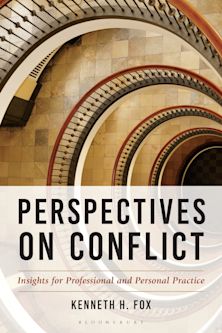- Home
- ACADEMIC
- Politics & International Relations
- Politics - Other
- When Worlds Elide
When Worlds Elide
Classics, Politics, Culture
Karen Bassi (Anthology Editor) , Peter J. Euben (Anthology Editor) , Carla Antonaccio (Contributor) , Noriko Aso (Contributor) , P J. Brendese (Contributor) , Peter Burian (Contributor) , Diskin Clay (Contributor) , Carol Dougherty (Contributor) , J Peter Euben (Contributor) , Roxanne L. Euben (Contributor) , Brooke Holmes (Contributor) , Susan Lape (Contributor) , Glenn W. Most (Contributor) , James I. Porter (Contributor) , Vanita Seth (Contributor) , Victoria Wohl (Contributor) , John Zumbrunnen (Contributor)
When Worlds Elide
Classics, Politics, Culture
Karen Bassi (Anthology Editor) , Peter J. Euben (Anthology Editor) , Carla Antonaccio (Contributor) , Noriko Aso (Contributor) , P J. Brendese (Contributor) , Peter Burian (Contributor) , Diskin Clay (Contributor) , Carol Dougherty (Contributor) , J Peter Euben (Contributor) , Roxanne L. Euben (Contributor) , Brooke Holmes (Contributor) , Susan Lape (Contributor) , Glenn W. Most (Contributor) , James I. Porter (Contributor) , Vanita Seth (Contributor) , Victoria Wohl (Contributor) , John Zumbrunnen (Contributor)
This product is usually dispatched within 3 days
- Delivery and returns info
-
Free US delivery on orders $35 or over
You must sign in to add this item to your wishlist. Please sign in or create an account
Description
For better or worse, the ancient Greeks retain their cultural, political, and philosophical authority for contemporary educators and actors. Maureen Dowd has talked about the Hellenization of the Bush administration, Thucydides has been used as a template to analyze the Iraqi War and the War on Terror, Greek drama has been repeatedly performed in sometimes spectacular if unconventional ways, while the Trojan War, the battle of Thermopylae, the Spartans, and Alexander have all been the subjects of recent films. Last year the New York Times carried a front page story about "conservatives" taking a "new tack" by establishing "beachheads" for programs in Western Civilization and American Institutions in which the ancient Greeks hold pride of place.
The contributors to When Worlds Elide are also invested in having Greek philosophy, literature, and political theory taken seriously in contemporary debates-whether over modes of interpreting Plato, Athenian democracy, gender, ethnicity, or materiality. What distinguishes this book is the substantive range of the essays in it and the generative potentialities of "using" ancient authors and events in analyzing these debates. It begins from the premise that "the Greeks" (like "the French" or "the Chinese") obscures the contested histories of ethnic, geographic, and political formations in favor of an idealized dehistoricized collectivity. The also book also illustrates the ways in which ancient texts must be understood within the history of interpretative practices, which means that "the Greeks" are more a moving target than a stable entity, and that each generation of interlocutors formulates continually transforming questions, readings, and arguments.
Finally, this book supposes that an interrogation of "the Greek legacy" depends on interdisciplinary work where interdisciplinarity functions as a verb-that is, something that is always in the process of being achieved.
Table of Contents
Part 2 Part One: Classics
Chapter 3 Chapter 1. Origins, Culture, and Identity in Classical Antiquity
Chapter 4 Chapter 2. Greece of the East: Philhellenism in Imperial Japan
Chapter 5 Chapter 3. Philhellenism, Cosmopolitanism, Nationalism
Chapter 6 Chapter 4.The Materiality of Classical Studies
Part 7 Part Two: Politics
Chapter 8 Chapter 5. Making Prometheus Speak: Dialogue, Torture, and the Power of Secrets in Prometheus Bound
Chapter 9 Chapter 6. For Love of the Impossible: Antigone, Memory, and the Politics of Possibility
Chapter 10 Chapter 7. Athens' Tale of Two Cities: Themistocles, Theseus, and the Construction of "Place" in Fifth-Century Athens
Chapter 11 Chapter 8. Thucydides in Baghdad
Chapter 12 Chapter 9. Before Race: Theorizing Athenian Citizen Identity
Chapter 13 Chapter 10. Comedy, the Ordinary Citizen, and the Salvation of the City
Part 14 Part Three: Culture
Chapter 15 Chapter 11. Gender and the City: Antigone from Hegel to Butler and Back
Chapter 16 Chapter 12. The Comparative Politics of Travel: Theôria, Talab al-'Ilm and the Search for Knowledge
Chapter 17 Chapter 13. Socrates, Palamedes, and the Trials of Philosophy
Chapter 18 Chapter 14. Body, Soul, and Medical Analogy in Plato
Chapter 19 Chapter 15. Men completely wild in appearance and way oflife: Fauns, Satyrs, Androgynes, Ichtyophages, Hippopodes, Sciopodes, Himantipodes, [and] Cyclopes
Chapter 20 Chapter 16. Suppliant Women and the Democratic State: White Men Saving Brown Women from Brown Men
Product details
| Published | Mar 25 2010 |
|---|---|
| Format | Paperback |
| Edition | 1st |
| Extent | 490 |
| ISBN | 9780739122754 |
| Imprint | Lexington Books |
| Dimensions | 9 x 6 inches |
| Series | Greek Studies: Interdisciplinary Approaches |
| Publisher | Bloomsbury Publishing |
About the contributors
Reviews
-
Anyone who has doubted the value of antiquity for the twenty-first century will come away from this book a true believer in the relevance of classics to the most pressing contemporary concerns. Far from offering easy solutions or facile analogies, When Worlds Elide boldly critiques classics itself in relation to nationalism, elites, material culture, and the structure of the university. This is a must-read resource-lucid, complex and exciting-for those interested in abiding questions: What makes a community? Who should lead? What is ethical? How do we reconcile money and political ambition?
Richard P. Martin, Stanford University
-
This exciting collection, with its stellar list of contributors, sets a bold agenda for the interdisciplinary study of classics and politics in the twenty-first century. It proves that it is indeed possible to conjoin theoretical insight with erudition and a passionate commitment to the enduring significance of Greek antiquity.
Josiah Ober, Stanford University



































